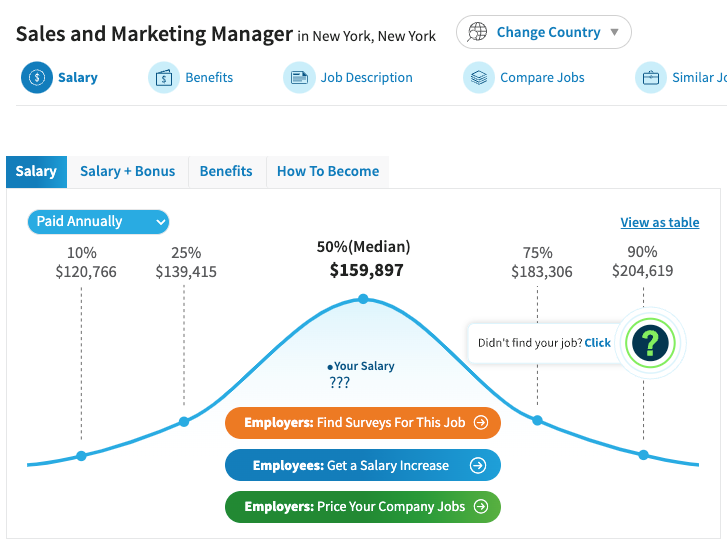Is Business Services A Good Career Path In 2024
About the author: Ilam’s career in Technology and Financial Services (including some of the biggest banks in the world) spans more than two decades, characterized by leadership roles and vast international experience.

What is Business Services?
Is business services a good career path? But before answering it, let’s quickly understand what business services actually means.
Business services is a broad term that includes many different types of jobs and roles in the business world. It’s not just one job, but a whole range of careers that help businesses operate smoothly. This can be anything from managing a company’s money to creating marketing campaigns, or even handling human resources.
These jobs are important because they support other parts of a business, like sales or product development. In this section, we’ll look at what kinds of jobs are in business services and why they’re so important for the success of a company.
Here’s some helpful career/leadership related blogs
- Is Major Banks A Good Career Path In 2024?
- Is Business Services A Good Career Path In 2024?
- Is Commercial Banks A Good Career Path In 2024?
- Do you need an Career coach / Interview coach?
- Careers– Agile Coach, RTE, Product Owner, Scrum Master, QA Manager
- Career development plan
- Career growth
- Project Management
- Managing Managers
- IT Career switch
- Software Engineering career path
- Agility, Agile Testing
- Remote leadership / Leadership traits / Agile leadership
Common Careers in Business Services
The business services sector, rich in diversity and opportunity, encompasses a range of careers that are crucial to the functioning and success of other businesses. Here’s a closer look at some common careers in this field:
Note: The salaries vary widely depending on the location, company, industry and many more variables. Please do a through research before making a commitment.
Human Resources Specialist
Responsibilities: Managing recruitment processes, training, employee relations, and compliance with labor laws.
- Key Skills: Strong communication, conflict resolution, organizational skills.
- Salary Range: $50,000 to $75,000 annually.
Marketing Manager

- Responsibilities: Developing marketing strategies, overseeing campaigns, and analyzing market trends.
- Key Skills: Creativity, analytical thinking, expertise in digital marketing.
- Salary Range: $60,000 to $100,000 per year.
Financial Analyst
- Responsibilities: Analyzing financial data, forecasting trends, and advising on financial decisions.
- Key Skills: Analytical skills, proficiency in financial software, attention to detail.
- Salary Range: $55,000 to $85,000 annually.
IT Support Specialist
- Responsibilities: Troubleshooting technical issues, maintaining network systems, ensuring data security.
- Key Skills: Technical knowledge, problem-solving, strong communication.
- Salary Range: $45,000 to $70,000 per year.
Accountant
- Responsibilities: Managing financial records, conducting audits, preparing budgets.
- Key Skills: Detail-oriented, strong in math, familiarity with accounting software.
- Salary Range: $50,000 to $75,000 annually.
Business Consultant
- Responsibilities: Providing expert advice, analyzing business practices, developing solutions.
- Key Skills: Strategic thinking, industry-specific knowledge, communication skills.
- Salary Range: $70,000 to $120,000 per year.
Legal Advisor
- Responsibilities: Advising on legal matters, ensuring compliance, handling documentation.
- Key Skills: Legal knowledge, analytical thinking, attention to detail.
- Salary Range: $75,000 to $150,000 annually, depending on experience and specialization.
Project Manager
- Responsibilities: Leading projects, coordinating teams, managing resources and timelines.
- Key Skills: Leadership, organizational skills, communication.
- Salary Range: $60,000 to $110,000 per year.
Sales Representative
- Responsibilities: Building client relationships, understanding customer needs, closing sales.
- Key Skills: Persuasion, negotiation, customer service.
- Salary Range: $40,000 to $80,000 annually, plus potential commissions.
Data Analyst
- Responsibilities: Collecting and interpreting data, advising on market trends, supporting decision-making.
- Key Skills: Data analysis, proficiency in data software, critical thinking.
- Salary Range: $55,000 to $85,000 per year.
Is Business Services A Good Career Path – Pros and Cons
Building a career in business services comes with its own set of advantages and challenges:
Pros:
- Diversity of Roles: Offers a wide range of career paths across various sectors.
- Opportunities for Growth: High potential for professional development and advancement.
- Skill Development: Constant learning opportunities to enhance both technical and soft skills.
- Economic Impact: Contributes significantly to the economy, providing a sense of accomplishment.
Cons:
- Rapid Change: Requires constant adaptation to technological and market changes.
- Competitive Environment: High competition for roles, especially in more lucrative positions.
- Work Pressure: Can involve tight deadlines and high-stress situations.
- Continuous Learning Requirement: The need for ongoing education and skill updates can be demanding.
Considering these pros and cons is crucial for anyone thinking about a career in business services, as it provides a realistic picture of what to expect in this dynamic field.
Educational Pathways and Skills Required for Business Services Careers
In the business services sector, educational requirements and skills vary across different roles:
- General Education: Many positions require at least a high school diploma, but a bachelor’s degree in business, finance, marketing, or related fields is often preferred.
- Advanced Education: For more specialized roles, such as financial analysts or legal advisors, higher education like a master’s degree can be beneficial.
- Technical Skills: Specific roles demand technical skills, like IT proficiency for tech roles or accounting skills for finance jobs.
- Soft Skills: Across the board, strong communication, problem-solving, and interpersonal skills are vital. These skills help in client interactions, team collaborations, and effective problem resolution.
- Continued Learning: The dynamic nature of business services often requires ongoing education and skill development to stay current with industry trends and technologies.
Understanding these educational pathways and skill requirements is crucial for anyone considering a career in business services, as it helps in aligning personal qualifications with job expectations.
Frequently Asked Questions
- What types of roles are available in the business services industry?
- This industry encompasses a wide range of roles including marketing professionals, business analysts, financial advisors, HR specialists, and IT support staff. Each role caters to specific aspects of business operations, offering a variety of career paths.
- How do business services positions vary?
- Positions in business services vary greatly in terms of responsibilities and expertise required. Some focus on strategic planning and analysis, while others are more operational or technical, such as IT support or financial management.
- What skills are essential for business services professionals?
- Essential skills include strong communication for client and team interactions, analytical thinking for problem-solving, and specific technical skills relevant to the chosen field. Adaptability and a continuous learning mindset are also key.
- Is a degree in business administration helpful in business services?
- A degree in business administration is very useful, providing a broad understanding of business principles and practices that are applicable across various roles in the industry, from management to financial analysis.
- What are the job prospects like in business services?
- Job prospects in business services are generally positive, with continuous demand due to the sector’s diversity and essential role in supporting other businesses.
- Do business services encompass roles outside traditional business management?
- Yes, besides managerial roles, business services include specialized positions like IT experts, legal advisors, and creative roles in marketing and advertising.
- Are business services roles adaptable to different industries?
- Professionals in business services often have versatile skills, making them adaptable to a range of industries from technology to healthcare, finance, and beyond.
- What’s the importance of professional and business services in today’s economy?
- These services are crucial for the smooth functioning and growth of other sectors, providing essential support and expertise that drives business success.
- How important are interpersonal skills in business services?
- Interpersonal skills are crucial, especially in roles that require collaboration, client management, and team leadership, as they facilitate effective communication and relationship building.
- Can I shift to a business services role from a different career?
- Yes, transitioning to business services is feasible with relevant skills. Many find success by leveraging transferable skills and acquiring specific knowledge through additional training or education.
Additional Sources
- Bureau of Labor Statistics (BLS): Provides comprehensive data on employment and wages across various sectors, including consumer services. Visit BLS
- LinkedIn Salary Insights: Offers detailed salary information based on job title and location, sourced from LinkedIn’s user data. Check LinkedIn
- Glassdoor: A platform where employees and former employees anonymously review companies and their management, and provide insights into salaries and job responsibilities. Explore Glassdoor
- Indeed: Features job listings as well as salary data and company reviews provided by employees. Visit Indeed


![How To Answer Tell Me About Yourself Like A Pro + Examples [Nov 2023]](https://ilampadman.com/wp-content/uploads/2022/09/image-12.jpeg)


